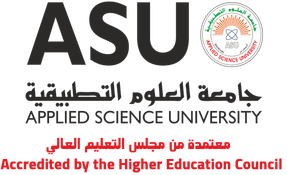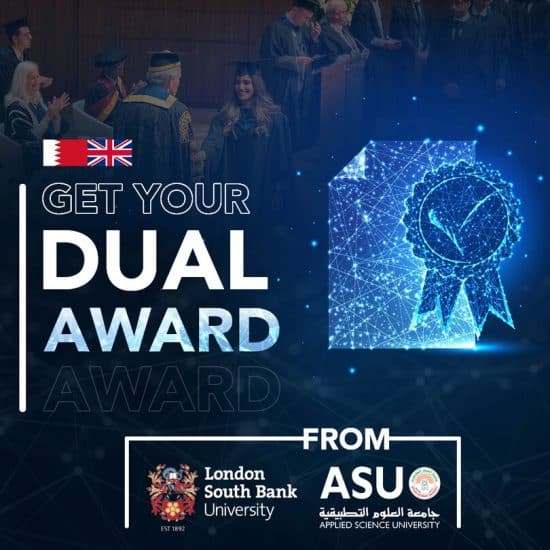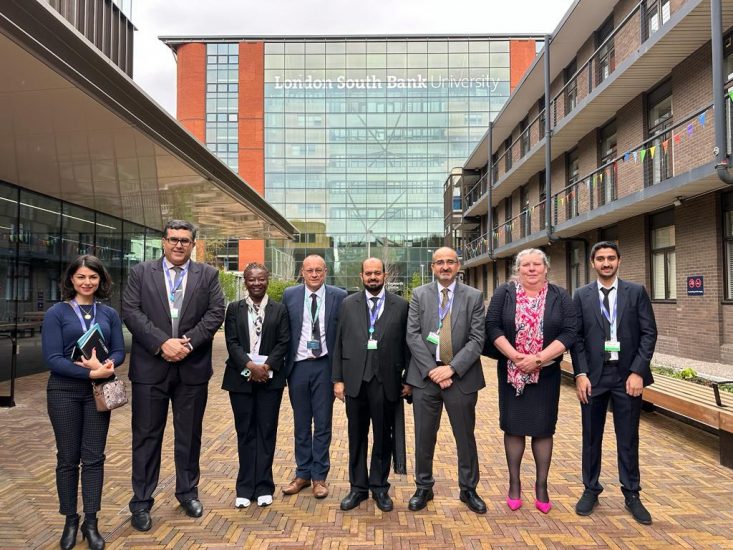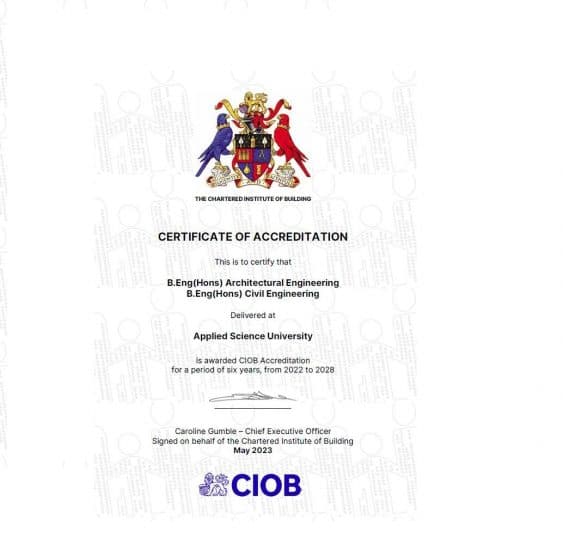INQAAHE Conference 2017
Applied Science University (ASU) participated in the INQAAHE Conference 2017 titled “Between Collaboration and Competition: The Promises and Challenges for Quality Assurance in Higher Education”, which took place in the Gulf Hotel, Bahrain for the period 28 February to 1 March 2017. The conference was sponsored by the Education and Training Quality Authority (BQA) and United Nations Educational, Scientific and Cultural Organization (UNESCO) where 350 delegations from 57 nationalities participated.
The Chairman of the BOT, Prof. Waheeb Alkhaja, the President, Prof. Ghassan Aouad, the VP for Academic Affairs and Development, Dr. Assem Al-Hajj, the Director of the QAAC, Dr. Radwan Kharabsheh, Deputy Director, Dr. Roy Tumaneng, Assistant Director, Dr. Nympha Joseph, and Head of Measurement and Evaluation Unit, Dr. Khairi Omar, participated in the conference.
Prof. Alkhaja and Prof. Aouad met with numerous key figures from different organizations and discussed quality issues.
Dr. Al-Hajj presented 2 papers on the 2nd and 3rd day of the conference. The first paper was entitled “The Quest for Quality through HEA Training: An Analytical Study” and focused on understanding the importance of assessment in achieving the course intended learning outcomes and in particular formative assessment. The paper concluded that formative assessment could be introduced in small pieces to allow quick feedback relevant to other large pieces of assessment. Some marks may be made available as incentive for students to engage with formative feedback assignments and academic staff should try peer and self-assessment as means of developing immediate feedback rather formal feedback.
It is important to emphasize to students what they do with the feedback, not the feedback itself.
The second paper that Dr. Al-Hajj presented was entitled “Can Quality Assurance and Cultural
Norms Coexist?” and pointed out that despite the remarkable progress that has been made in QA in most Higher Education institutions, there are still limitations on institutions adopting a quality culture reflected in behaviors and values which should impact and contribute to how institutions operate. Ultimate quality can only be achieved by making cultural norms and QA coexist as soul and body.
Dr. Tumaneng and Dr. Joseph both presented a paper together titled “The Quality of Business Education in the Kingdom of Bahrain” on Wednesday, 1 March 2017. The papers were received positively by the attendees.
Dr. Kharabsheh and Dr. Omar attended two of the Pre-Conference Workshops that took place on Monday, 27 February 2017.
First being ‘Workshop 1: External Quality Assurance (EQA) and Internal Quality Assurance (IQA) for QA agencies presented by Ronny Heintze from Germany, and the second being ‘Workshop 3: Training reviewers for external quality assurance of HEIs (Higher Education Institutions) and their programmes presented by Bastian Baumann from Germany.
Dr. Kharabsheh attended both Plenary Sessions and numerous papers. One of the interesting sessions was the ‘Quality assurance for competitive advantage in the markets for national and international students’.
Its focus was that ‘International education is now a hugely competitive market, and national governments and individual providers often see agencies as key tools for developing positional advantage. What are the implications for agencies in seeking to meet these expectations? And, as some agencies position themselves to offer services outside their national jurisdictions, are we also now seeing the emergence of a competitive international market in quality assurance itself? Competition within countries is also intense in many places, is QA seen as a help or a hindrance?’
The discussion during this session was very interesting, especially the point which was raised by Dr. Francisco Marmolejo from the World Bank.
He argued about the importance of alternative education for universities and the need to have a wider perspective of education in this era of social media and connectivity.
It shifts the focus of closed classes to a new perspective of open classes, where the product is the individual itself, where education is tailored for every specific individual. This raises the issue of quality in a wider perspective. ASU’s effective use of social media as well as interactive educational tools like moodle, shows that alternative needs of communication is definitely something to explore more in the future. ……. Of online discussions, study groups, self-study and online self-learning are definitely among the solutions that we need to look at.
The value of the conference was not only in the papers presented but also in the practical experiences, educational experiences and quality issues brought in by the participants from different countries world-wide.






